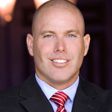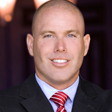Boomers Going Out with a Bang: A Historic Transfer of Wealth
They’ve amassed $30 trillion in assets to pass down, but many don’t have plans in place to safeguard their legacies. Here are five things they should do to cover their bases.


Profit and prosper with the best of Kiplinger's advice on investing, taxes, retirement, personal finance and much more. Delivered daily. Enter your email in the box and click Sign Me Up.
You are now subscribed
Your newsletter sign-up was successful
Want to add more newsletters?

Delivered daily
Kiplinger Today
Profit and prosper with the best of Kiplinger's advice on investing, taxes, retirement, personal finance and much more delivered daily. Smart money moves start here.

Sent five days a week
Kiplinger A Step Ahead
Get practical help to make better financial decisions in your everyday life, from spending to savings on top deals.

Delivered daily
Kiplinger Closing Bell
Get today's biggest financial and investing headlines delivered to your inbox every day the U.S. stock market is open.

Sent twice a week
Kiplinger Adviser Intel
Financial pros across the country share best practices and fresh tactics to preserve and grow your wealth.

Delivered weekly
Kiplinger Tax Tips
Trim your federal and state tax bills with practical tax-planning and tax-cutting strategies.

Sent twice a week
Kiplinger Retirement Tips
Your twice-a-week guide to planning and enjoying a financially secure and richly rewarding retirement

Sent bimonthly.
Kiplinger Adviser Angle
Insights for advisers, wealth managers and other financial professionals.

Sent twice a week
Kiplinger Investing Weekly
Your twice-a-week roundup of promising stocks, funds, companies and industries you should consider, ones you should avoid, and why.

Sent weekly for six weeks
Kiplinger Invest for Retirement
Your step-by-step six-part series on how to invest for retirement, from devising a successful strategy to exactly which investments to choose.
Maybe we should call them “Generation Generous.”
Over the next few decades, Baby Boomers will pass down an estimated $30 trillion in assets to their children and grandchildren.
It’s money they’ve worked hard to save and want their loved ones to have. And yet, most Boomers — perhaps because they simply can’t imagine growing old, much less dying — have done little to prepare for the challenges that will come with this epic transfer of wealth. Meanwhile, their children — mostly Millennials who, according to recent research, are largely skeptical of professional financial services — are confident they can use do-it-yourself digital tools to deal with Mom and Dad’s money whenever they get it.
From just $107.88 $24.99 for Kiplinger Personal Finance
Become a smarter, better informed investor. Subscribe from just $107.88 $24.99, plus get up to 4 Special Issues

Sign up for Kiplinger’s Free Newsletters
Profit and prosper with the best of expert advice on investing, taxes, retirement, personal finance and more - straight to your e-mail.
Profit and prosper with the best of expert advice - straight to your e-mail.
They’re both wrong, of course.
There can be dozens of decisions that need to be made to help properly pass down this money — to help preserve it from taxes and avoid going to probate, to make sure it goes to the intended people, is used as the parents intended, to provide asset protection in case a child is divorced or sued, and to ensure the children aren’t accidentally disinherited.
Solid planning can help prevent mistakes that could cause potential arguments or lawsuits and mean trouble for generations to come. Here are some things to consider:
1. Get your children involved with you and your financial professional early on.
At least make an introduction to give them a basic understanding, from a 10,000-foot perspective, of what’s important to you. If you’re comfortable getting into details, consider sharing the types of assets you’ll leave and how you would like them to be divided. You may be surprised at the things that can cause arguments down the road. Often, it isn’t about the money; it’s the sentimental assets, such as a vacation cottage or cabin, or a treasured piece of jewelry or art. You should also be aware that your children’s spouses may get involved and try to influence their expectations. So be clear about who should be included in this conversation.
2. Talk to your financial professional about tax-efficient strategies.
I believe and have read many articles that say a majority of the heirs who inherit an IRA take it as a lump sum, pay all the taxes and blow it within nine months. If this isn’t what you want for your kids — and their kids — talk about multi-generational IRAs, ensuring your children appreciate and understand the advantages of keeping the tax deferral throughout their lifetime. For a generation who likely won’t have pensions, this strategy can legally force them to stretch out the money and may provide a lifetime income stream.
3. Choose a capable decision-maker.
After all debts have been settled, it is up to the executor or successor trustee to distribute the assets to heirs according to the provisions of your will. He or she may have to deal with disappointed family members or others who feel they didn’t get their due and will drag out the process. Ultimately, this may only eat away at the money you’re leaving. This isn’t an honorary title to be bestowed on the eldest son or the favorite child. We think it should be someone who is well-liked, respected, persistent and business-minded, as this is a large responsibility and shouldn’t be taken lightly. This person will have a fiduciary responsibility to follow your wishes as they are stated.
4. Make sure your health care — and end of life — wishes have been made clear to all family members.
Tell them specifically what you want to happen, and try to have that conversation with them all at the same time. This is where we can see fights. For example, one child wants to hold on and keep Mom on a respirator and/or feeding tube. And no one is sure what Mom really wanted because she told each sibling something different. Make sure your wishes are well-documented, and work with your estate-planning attorney so you are clear in your estate documents.
5. Talk about asset protection.
The last thing you want is for some or all of the money you leave to your children and/or grandchildren to go to a potential ex-son-in-law or ex-daughter-in-law, or for it to be lost because of a future legal issue. There may be ways to prevent that through proper estate planning — by setting up different kinds of trusts, by providing clear documentation regarding any gifting, and by keeping property correctly titled, for example. We recommend that you meet with your estate-planning attorney to discuss.
It all starts with communication with your loved ones and your team of financial professionals. Everyone should understand who’s getting what, how, when and why. Some people say, “Well, our family is all spread out — it’s too difficult to get together.” But you can do this with a conference call. Or, if there are visuals — if parents really want to share specifics — you can do it with today’s technology, like Join Me or GoToMeeting.
Just lay it out there to help reduce any problems so everyone knows what Mom and Dad want.
Kirk Cassidy is president of Senior Planning Advisors (www.seniorplanningadvisors.com) and Strategic Investment Advisors. He has passed the Series 65 securities exam, which makes him a fiduciary, and he has a life insurance license in several states including Michigan and California (CA license number 0F68091). He also is a national speaker.
Kim Franke-Folstad contributed to this article.
Profit and prosper with the best of Kiplinger's advice on investing, taxes, retirement, personal finance and much more. Delivered daily. Enter your email in the box and click Sign Me Up.

Kirk Cassidy is president of Senior Planning Advisors and Strategic Investment Advisors. Cassidy is an Investment Adviser Representative and a fiduciary with a Series 65 securities license and life insurance licenses. He is a national speaker who teaches retirement planning in a university setting.
-
 Dow Adds 1,206 Points to Top 50,000: Stock Market Today
Dow Adds 1,206 Points to Top 50,000: Stock Market TodayThe S&P 500 and Nasdaq also had strong finishes to a volatile week, with beaten-down tech stocks outperforming.
-
 Ask the Tax Editor: Federal Income Tax Deductions
Ask the Tax Editor: Federal Income Tax DeductionsAsk the Editor In this week's Ask the Editor Q&A, Joy Taylor answers questions on federal income tax deductions
-
 States With No-Fault Car Insurance Laws (and How No-Fault Car Insurance Works)
States With No-Fault Car Insurance Laws (and How No-Fault Car Insurance Works)A breakdown of the confusing rules around no-fault car insurance in every state where it exists.
-
 For the 2% Club, the Guardrails Approach and the 4% Rule Do Not Work: Here's What Works Instead
For the 2% Club, the Guardrails Approach and the 4% Rule Do Not Work: Here's What Works InsteadFor retirees with a pension, traditional withdrawal rules could be too restrictive. You need a tailored income plan that is much more flexible and realistic.
-
 Retiring Next Year? Now Is the Time to Start Designing What Your Retirement Will Look Like
Retiring Next Year? Now Is the Time to Start Designing What Your Retirement Will Look LikeThis is when you should be shifting your focus from growing your portfolio to designing an income and tax strategy that aligns your resources with your purpose.
-
 I'm a Financial Planner: This Layered Approach for Your Retirement Money Can Help Lower Your Stress
I'm a Financial Planner: This Layered Approach for Your Retirement Money Can Help Lower Your StressTo be confident about retirement, consider building a safety net by dividing assets into distinct layers and establishing a regular review process. Here's how.
-
 The 4 Estate Planning Documents Every High-Net-Worth Family Needs (Not Just a Will)
The 4 Estate Planning Documents Every High-Net-Worth Family Needs (Not Just a Will)The key to successful estate planning for HNW families isn't just drafting these four documents, but ensuring they're current and immediately accessible.
-
 Love and Legacy: What Couples Rarely Talk About (But Should)
Love and Legacy: What Couples Rarely Talk About (But Should)Couples who talk openly about finances, including estate planning, are more likely to head into retirement joyfully. How can you get the conversation going?
-
 How to Get the Fair Value for Your Shares When You Are in the Minority Vote on a Sale of Substantially All Corporate Assets
How to Get the Fair Value for Your Shares When You Are in the Minority Vote on a Sale of Substantially All Corporate AssetsWhen a sale of substantially all corporate assets is approved by majority vote, shareholders on the losing side of the vote should understand their rights.
-
 How to Add a Pet Trust to Your Estate Plan: Don't Leave Your Best Friend to Chance
How to Add a Pet Trust to Your Estate Plan: Don't Leave Your Best Friend to ChanceAdding a pet trust to your estate plan can ensure your pets are properly looked after when you're no longer able to care for them. This is how to go about it.
-
 Want to Avoid Leaving Chaos in Your Wake? Don't Leave Behind an Outdated Estate Plan
Want to Avoid Leaving Chaos in Your Wake? Don't Leave Behind an Outdated Estate PlanAn outdated or incomplete estate plan could cause confusion for those handling your affairs at a difficult time. This guide highlights what to update and when.